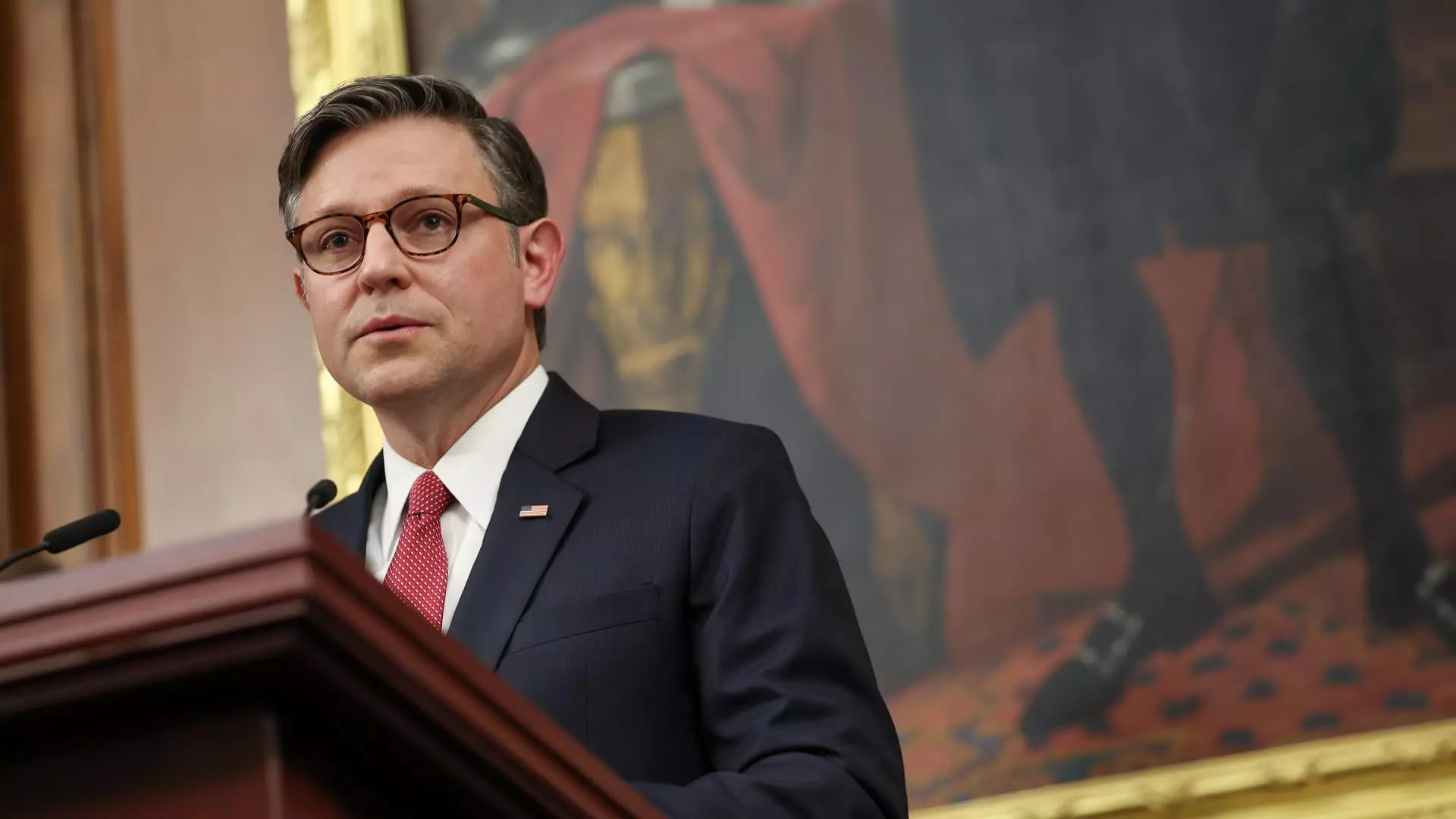Recent discussions led by House Speaker Mike Johnson have sparked a firestorm in political circles, revealing a distressing trend regarding the limits of executive power in the United States. Johnson’s assertion that the War Powers Act is unconstitutional and his dismissal of any resolution aimed at restraining military action in the Middle East highlight a critical issue: the slow but certain decay of congressional authority over war powers. This perspective not only echoes the sentiments of several prominent scholars but also invites serious reflection on a disturbing trajectory for American democracy.
At the heart of this debate is the War Powers Resolution (WPR) of 1973, designed to ensure that the executive branch does not unilaterally drag the nation into prolonged conflicts. Traditionally, the act obligates the President to notify Congress within two days of military engagement and requires cessation of hostilities after 60 days unless Congress formally declares war or provides an extension. Johnson’s rhetoric elevates the tension between the legislative and executive branches, raising questions about whether America’s foundational principles of checks and balances are being systematically undermined.
The Commander-in-Chief Mythology
Mike Johnson’s ardent defense of President Trump’s recent military strikes against Iranian targets frames these actions as well within the bounds of Article II of the Constitution, which grants the president significant powers as Commander-in-Chief. However, a critical examination of this argument reveals a dangerous ideology: the overreach of presidential power under the guise of protecting national interests. The Constitution explicitly articulates that Congress holds the authority to declare war, a power it has largely abdicated since World War II, leaving a vacuum that successive presidents have been all too willing to fill.
This growing trend has enormous implications for American democracy and international relations. If Congress is complicit in its own obsolescence by failing to rein in executive power, it endangers the very fabric of democratic governance. The implications of unilateral military actions are profound; they risk unnecessary escalation and conflict without rigorous debate or approval from the representatives of the people.
Political Ramifications and Partisan Divides
Additionally troubling is the partisan environment that colors the dialogue surrounding military action. The recent proposal by Rep. Thomas Massie and Rep. Ro Khanna to restrict U.S. military action in Iran received scant support from leaders within the Republican Party, highlighting a rift that reflects broader partisan divisions. Johnson’s dismissal of the resolution not only signals a reluctance to curtail executive power but also reinforces a troubling norm: that critiques of the president’s military actions are inherently unpatriotic.
However, the rhetoric employed by President Trump against Massie, calling him a “Third Rate Congressman” and a “LOSER,” illustrates the dangerous dynamics of political discourse. It encourages a culture of conformity and silences dissenting voices even within the party. The consequences are twofold: not only does this kind of vitriolic language embolden the executive to act without restraint, but it also dissuades other lawmakers from taking a stand in defense of congressional prerogatives. The lesson is clear: dissent is increasingly viewed as a liability rather than a vital component of democratic governance.
The Path Ahead is Unclear
While there are commendable efforts to assert congressional authority over military engagements, such as the introduction of privileged resolutions, their effectiveness is questionable at best. The interplay between Trump’s provocative foreign policy and Congress’s apparent impotence highlights an urgent need for renewed engagement on the War Powers Act. If it goes unchallenged, an executive unconstrained by legislative oversight risks normalizing reactions that could lead the U.S. into more foreign entanglements.
Moreover, it is critical that lawmakers reassess their roles and reclaim their responsibilities in this arena. A dedicated effort to uphold the constitutional mandate of shared war powers is not merely a legal obligation; it is a moral imperative for a nation that prides itself on democratic governance. As we grapple with complex geopolitical landscapes, the calls for accountability and collaboration between branches of government should resonate louder than ever. Empowering Congress to fulfill its war-declaring duties is essential to ensure that national interests are pursued with proper scrutiny and unwavering integrity.


Leave a Reply